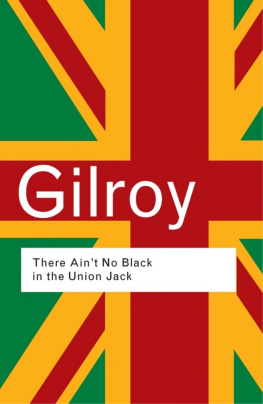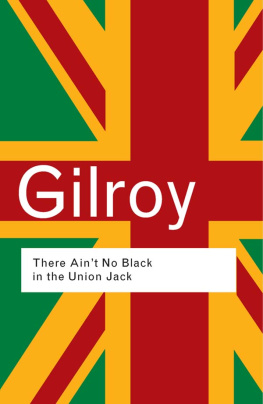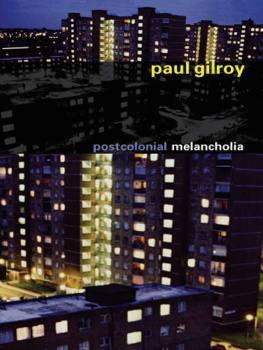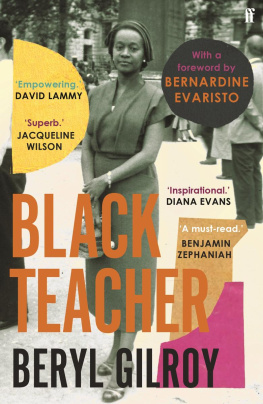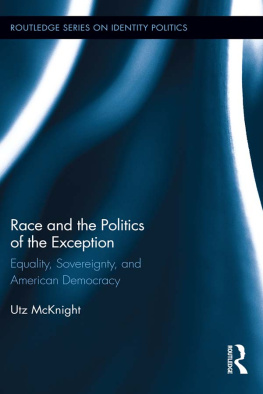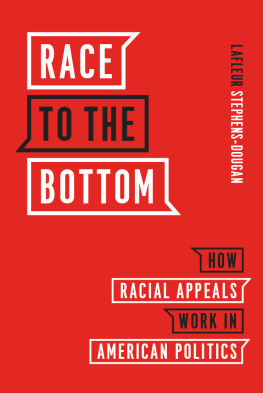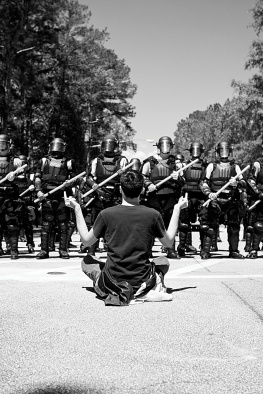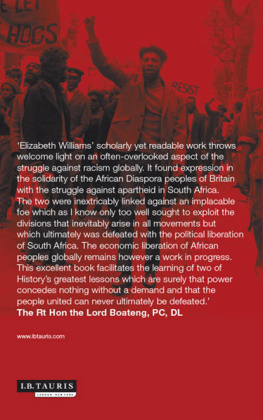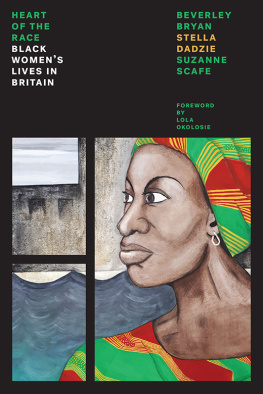There Ain't No Black in the Union Jack
illuminating and disturbing
Labour Weekly
a stimulating and thought-provoking set of insights into the position of race within British society a brilliant discursus on expressive black culture, a true successor to the best cultural studies literature an altogether excellently written book deserves to be widely read and discussed.
Critical Social Policy
a major contribution to the study of popular culture
Marxism Today
A fascinating analysis of the discourses that have accompanied black settlement in Britain An important addition to the stock of critical works on race and culture.
Chicago Tribune
Gilroy demonstrates effectively that cultural traditions are not static, but develop, grow and indeed mutate, as they influence and are influenced by other changing traditions around them.
David Edgar, Listener Review of Books
Routledge Classics contains the very best of Routledge publishing over the past century or so, books that have, by popular consent, become established as classics in their field. Drawing on a fantastic heritage of innovative writing published by Routledge and its associated imprints, this series makes available in attractive, affordable form some of the most important works of modern times.
For a complete list of titles visit
www.routledgeclassics.com
Paul
Gilroy
There Ain't No Black in the Union Jack
The cultural politics of race and nation
With a new introduction by the author
First published 1987 by Unwin Hyman Ltd
Published 1992 by Routledge
First published as Routledge Classic 2002
by Routledge
2 Park Square, Milton Park, Abingdon, Oxfordshire, OX14 4RN
711 Third Avenue, New York NY 10017
Routledge is an imprint of the Taylor & Francis Group, an informa business
1987 Paul Gilroy
Introduction to Routledge Classics Edition 2002
Paul Gilroy
Typeset in Joanna by RefineCatch Limited, Bungay, Suffolk
All rights reserved. No part of this book may be reprinted or reproduced or utilised in any form or by any electronic, mechanical, or other means, now known or hereafter invented, including photocopying and recording, or in any information storage or retrieval system, without permission in writing from the publishers.
British Library Cataloguing in Publication Data
A catalogue record for this book is available from the British Library
ISBN13: 9780415289818 (pbk)
ISBN13: 9780415289801 (hbk)
To Pat's memory,
and to Marcus's future
The Courtesies of order, of ruly forms pursued from a heart of rage and terror or grief defame the truth of every human crisis. And that, indeed, is the plan: To defuse and to deform the motivating truth of critical human response to pain. If you make and keep my life horrible, then when I can tell the truth, it will be a horrible truth; it will not sound good or look good, or God willing, feel good to you, either. There is nothing good about the evils of a life forced into useless and impotent drift and privation. There is very little that is attractive or soothing about being strangled to death, whether it is the literal death of the body or the actual death of the soul that lying, that the humiliation and the evil of self-denial guarantees. Extremity demands, and justifies an extreme response. Violation invites, teaches violence. Less than that, less than a scream or a fist, less than the absolute cessation of normal events in the lock of abnormal duress is a lie and, worse than that, it is a blasphemous ridicule of the self.
(June Jordan, Civil Wars)
There is no escaping what the future holds. We are going back, back to something earlier, maybe better, maybe worse, maybe something more terrifyingly human! These few hundred years of freedom, empire building, voting, liberty, democracy these will be regarded as the romantic centuries in human history. There will be in that future no trial by jury, no writs of habeas corpus, no freedom of speech, of religion all that is being buried and not by communists and fascists alone, but by their opponents as well. All hands are shovelling clay onto the body of freedom before it even dies, while it lies breathing its last.
(Richard Wright, The Outsider)
the only agent on which we can premise future radical change emerges from the melding of traditional groups into a public sphere, a body politic, a community imbued with a sense of cultural and spiritual continuity and renewal. This community, however, is constituted only in the ever-present act of an ever-dynamic effort of public self-assertion that yields a sharp sense of selfhood. Collectivity thus melds with individuality to produce rounded human beings in a rounded society. Direct action assumes the form of direct democracy: the participatory forms of freedom rest on face-to-face assemblies, rotation of public functions, and, where possible, consensus.
(Murray Bookchin, Were We Wrong?)
CONTENTS
Many people have contributed to this book in different ways and I would like to thank them all publicly. Convention dictates that I bear the ultimate responsibility for it but all my friends, teachers and associates named below have played a part in its development and I am deeply grateful to all of them. If I was truthful, I'd admit that all I have done is cobble their ideas together.
Richard Johnson and Stuart Hall supplied detailed critical comments on early drafts and I am grateful for their precious time and their pedagogic patience.
Mandy Rose, Trisha Bohn, Courtney Griffiths, Jan McKenley, Joe Sim, Derrick McLintock, Dick Hebdige, Terry Daniels, Errol Lawrence, Pratibha Parmar, Chetan Bhatt, John Solomos, Patrick Wright and Beryl Gilroy gave comments on various parts of it. All of them encouraged and challenged me in the most productive way possible by their disagreements. You're all broader than broadway.
Lloyd Brown couldn't have been more generous and his encyclopaedic knowledge of black musics is second to none. I really am in his debt, especially for Go Away Little Boy and Red, Black and Green.
Valuable and useful material were selflessly passed to me by Hazel Carby, Max Farrar, Val Wilmer, Mark Ainley, Pete Ayrton, Darla-Jane Gilroy, Rick Fawcett and Lawrence Marlow who were also encouraging.
Enrico Stennett and Daddy Peckings told me a dread history that I would never have found out otherwise. is part of a campaign to have Peckings' Askew Road shop made into a national monument.
I was greatly strengthened by the encouragement of Val Amos, Isaac Julien, Kobena Mercer, Cora Kaplan, Simon Jones, Claire DeMuth, Helen Walker and Jo Mayne. They all made helpful suggestions and, more importantly, made me believe I could and had to do it.
Amana Smith and her family and Angela Napoleon and hers looked after my son so that I could get the time to write. An extra thank you to them. Glen Bor, David Bor, Francis Ware, Kate Pullin-ger, Nick Robin, Nicola Stephenson, Sarah Martin and many of the others listed above baby-sat so that I could go out in the field.
Gill Lawrence arrested the deterioration in my eyesight by typing the last sixty pages of the manuscript; I am especially grateful to her.

